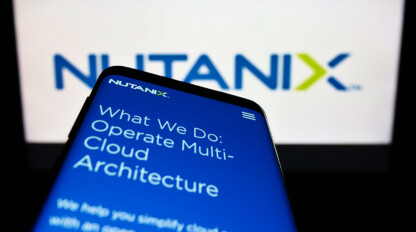New Cisco Certifications: Everything You Need to Know

Achieving and maintaining technical certifications is a great way to stay relevant and up to date. At ivision, Client Engagement Values are the core of everything we do. One of those values, “I engineer thoughtful solutions that promote long-term partnerships,” is the heart of keeping ivision engineers trained, ready and relevant in today’s ever-changing technology landscape.
This year’s Cisco Live announced several changes to the Cisco certification portfolio. The changes are going live on February 24, 2020. There are new exam topics, new exams, new titles, and a new modular approach to Cisco certifications. The core certification programs for CCNA, CCNP, and CCIE are all being updated. Additionally, a completely new DevNet certification program was announced.
When the changes go live, each exam an engineer passes will earn them a specialization. If you are currently studying for any CCNA, CCNP, or CCIE, it’s best to keep going and try to certify before February 24, 2020, so that your certification will migrate to the new program. Here are some of the changes you need to know to be successful in your Cisco certification journey:
CCNA
The new exam Implementing and Administering Cisco Solutions (200-301 CCNA) is replacing all the current CCNA and CCDA certifications. Specialization at the CCNA level is going away – no more CCNA security, wireless, etc. Instead, engineers will now specialize at the CCNP level. If you are new to Cisco technology, the good news is that it’s one exam and done to earn a CCNA. If you are already studying for the current CCNA, keep working to pass that exam because any CCNA certification earned before February 24, 2020, will transition to the new CCNA program.
CCNP
The CCNP program is also changing to concentrate on five core technology areas: Enterprise, Data Center, Security, Service Provider and Collaboration. To earn any professional level certification, an engineer needs to pass two exams: a technology core exam and a concentration exam. This restructuring is leveling the field across the different specializations. Additionally, each exam passed during your journey will earn you a specialist certification.
To earn the new CCNP Enterprise you must pass the Implementing and Operating Cisco Enterprise Network Core Technologies (300-401 ENCOR) exam and your choice of one of the six concentration exams. After passing Enterprise Core you will earn Cisco Certified Specialist–Enterprise Core, and after passing a concentration exam you will earn Cisco Certified Specialist for that area. A complete CCNP Enterprise certification will earn the engineer three titles: CCNP Enterprise Certification, Cisco Certified Specialist–Enterprise Core, and Cisco Certified Specialist–Enterprise Advanced Infrastructure Implementation. In the new program, there are no prerequisites for professional level certifications.
CCIE
The new CCIE program has six core technology areas: Enterprise Infrastructure, Enterprise Wireless, Data Center, Security, Service Provider and Collaboration. There are no prerequisites for the new CCIE program, so this remains unchanged from the old program. To earn a CCIE, an engineer must pass a core technology exam and a lab exam in the technology area of choice. The old CCIE written exams have been replaced by the core technology exams from the CCNP program.
The new core technology exams are the gatekeepers for the CCIE lab. As an example, if you want to earn CCIE Data Center, you need to pass the Implementing and Operating Cisco Data Center Core Technologies (DCCOR 300-601) exam as well as the lab exam CCIE Data Center v3.0. Finally, the previous CCIE recertification policy of two years active, one year inactive has changed to a full three years of active status before requiring recertification.
Keep Going!
If you are currently studying for any Cisco certifications, keep going and do your best to pass before February 24, 2020. The certifications you earn before that date will migrate to the new programs, and Cisco has migration tools that will help you understand what your individual path looks like.
Cisco’s training and certifications validate your technical job skills with a high standard recognized industry-wide. As technology continues to change, it is vital that engineers stay current with their learning. At ivision, we invest deeply in the continued training of our people, which includes staying up to date on certifications. That’s how we engineer thoughtful solutions for our clients, and what makes ivision different.
Good luck on your certification journey!



